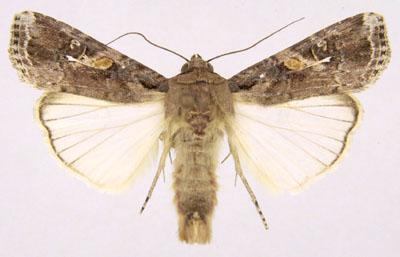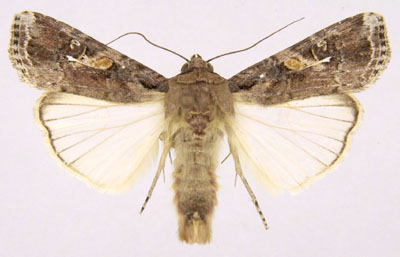Crops in northern and northeastern China have been hit by huge infestations of “armyworm” since early August with decreased or zero yields. Several farmers have died from pesticide poisoning after trying to save their crops.
Armyworm is a moth caterpillar and a serious pest, named after its feeding habits whereby it wipes out all available food in one area before moving onto the next.
“Third generation armyworms,” meaning it was the third time in memory they had struck, began to plague the corn and rice fields in Inner Mongolia, Hebei Province, Beijing, Tianjin, and Shanxi Province early this month, Farmers Daily reported.
In Liaoning Province, the outbreak was described as the worst in 20 years, according to Northeast News Online. By Aug. 12, the caterpillars had covered around 343,000 acres of farmland.
Jilin Province’s Changchun City, one of the main producers of commodity grains, also suffered an unusually serious outbreak, China News Service reported. Changchun Agriculture Committee estimated that 205,592 acres of grain had been destroyed, and Nongan County was the hardest hit county with 103,784 acres of grain damaged.
A farmer called Mr. Tang from Nongan Township told The Epoch Times that the armyworms appeared in early August. “Now the corn fields are full of armyworms. One head of corn is covered with 20 to 30 worms … If it goes on like this, there will surely be zero production this year,” Mr. Tang said.
Another farmer, Mr. Wang from Wangben Township, Jilin Province, told the Sound of Hope (SOH) Radio Network all the corn leaves were rapidly eaten in areas with serious infestation. “There were areas that suffered very serious damage. I think those fields will not produce anything this year,” he said.
Mr. Wang said some business owners have raised the price of pesticides and equipment when many farmers are already in trouble. “Masks used to be 8 to 10 yuan, and now they cost 30 to 40 yuan. The price of pesticide spray equipment has increased from several thousand yuan to over 10,000 yuan (US$1,572),” he said.
According to a report by the U.S-based Chinese-language media Boxun, a few thousand farmers in Liaoning Province were hospitalized with pesticide poisoning after heavily spraying their crops. Several died and some were in a critical condition after spending over 200,000 yuan (US$31,436) on hospital fees.
The report said farmers from Faku Township of Shenyang City—a large agricultural county in Liaoning Province—have requested provincial authorities dispatch planes to help spray pesticide. However, the farmers were told by county authorities that they have to pay first, and that the farmers’ deaths are not their responsibility.
In Yemaotai Township of Shenyang City, a young man told a Boxun reporter that journalists and the provincial authorities had not reported the truth about people dying, adding, “Several days ago, I posted a message on Beidu Tieba [one of the largest Chinese Internet forums] exposing how farmers have died from pesticide poisoning. But it was deleted minutes later. I also received a warning from a certain state agency for doing so.”
There were many posts on the armyworm infestation in different areas of China. Many netizens pleaded for the central government to help the poor farmers.
“Now I believe that 2012 is a disastrous year. My whole body was covered with worms when I came out of the cornfield. It looked like a science fiction movie,” said a netizen called @crazyDaming.
“It has gotten so bad, yet the government has not done anything about it yet. Are they human?”
Read the original Chinese article.
he Epoch Times publishes in 35 countries and in 19 languages. Subscribe to our e-newsletter.





